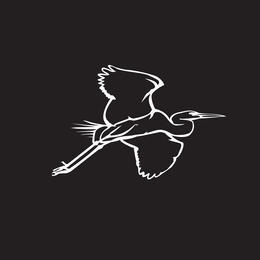GARNER, NC – North Carolina will celebrate Native Plants Week from October 20–26, shining a spotlight on the importance of native plants for birds, pollinators, and people. This year’s celebration comes on the heels of a legislative win for wildlife and native ecosystems at the N.C. General Assembly.
Working with Sen. Bill Rabon, Audubon and partners helped advance a suite of bird-friendly policies, including a study to remove invasive plants from state parks and a ban on mowing along state highways during the month of May for the benefit of pollinators and nesting birds. This bill builds on years of advocacy from Audubon, our chapters, and many partners to promote native plants in communities, at town halls and in the legislature.
“From backyards to city parks to the N.C. General Assembly, the movement for native plants continues to grow,” Audubon North Carolina Executive Director Curtis Smalling said. “Anyone can get involved by planting natives, whether it’s in your backyard, a local park, or a pot on your apartment balcony. It’s a great way to support birds and dig into North Carolina’s natural heritage.”
Over the past three years, momentum for native plants has grown statewide:
- 2023: North Carolina adopted new policies requiring native plants at state parks, historic sites, and roadways.
- 2024: Greensboro, Winston-Salem, and Chatham County passed local ordinances and land-use rules supporting native plant use, thanks to advocacy from Audubon chapters.
- 2025: The NC General Assembly expanded protections through the new statewide bill, Senate Bill 391.
One of the biggest benefits native plants provide for birds is the insects they host, which are a critical food source, especially for recently hatched chicks. North Carolina is home to more than 3,900 native plant species, from backyard favorites like spice bush and viburnum to the state flower (Flowering Dogwood) and state tree (Longleaf Pine). For gardeners and homeowners, native plants have the added benefit of being low maintenance, requiring less water, and reducing the need for pesticides and fertilizers.
Native Plants Week takes place in the fall because now is the best time to plant natives, as cooler weather and seasonal rainfall allow plants to establish strong roots before winter. Join the movement and celebrate by:
- Planting berry-producing shrubs like beautyberry, blackhaw viburnum, and holly to feed migrating birds.
- Replacing lawn or ornamental plantings with natives that support pollinators.
- Using this social toolkit to spread the word using #NCNativePlantsWeek on social media.
Find native plants for your area (and places to get them) by using Audubon’s native plants database, searchable by zip code. Learn more at nc.audubon.org.
Media Contact: Brittany Salmons, brittany.salmons@audubon.org
About Audubon North Carolina
Audubon North Carolina, a state program of the National Audubon Society, has offices in Durham, Boone, Corolla, and Wilmington. Learn more at nc.audubon.org and on Twitter, Facebook, and Instagram. The National Audubon Society protects birds and the places they need, today and tomorrow. A nonprofit conservation organization since 1905, Audubon works throughout the Americas using science, advocacy, education, and on-the-ground conservation. Learn more at www.audubon.org and on Facebook, Twitter and Instagram @audubonsociety.




